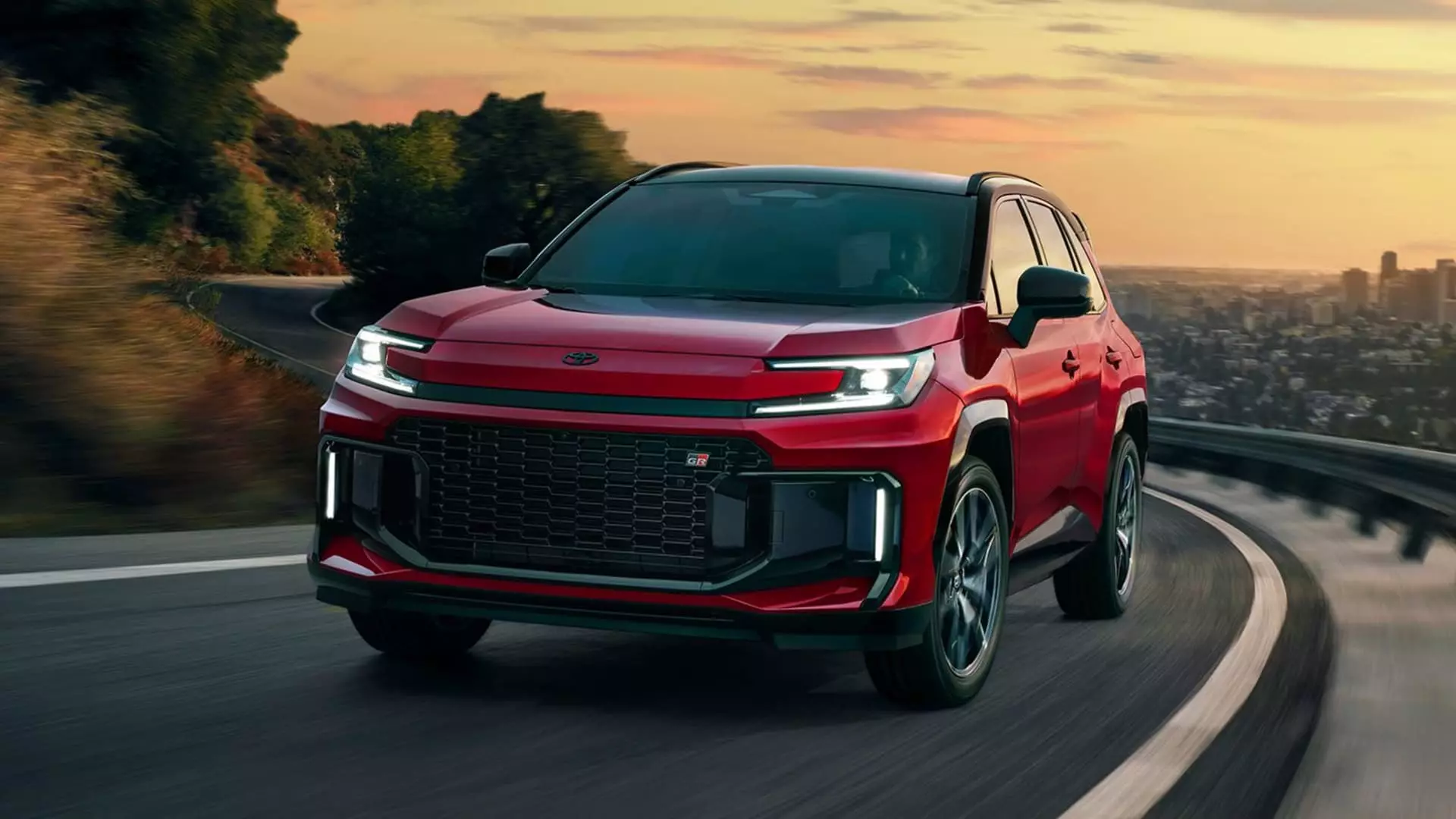Toyota has made a bold declaration with the latest iteration of its best-selling SUV, the RAV4, set to launch in 2026. This vehicle will notably abandon traditional gasoline engines, marking a decisive move towards hybrid technology. Initially seen as a mere trend, hybrids have now cemented their significance in the automotive market, and Toyota is keenly aware that consumer demand is shifting. This pivot is not merely a response to tightening fuel economy regulations; it’s a strategic advancement rooted in consumer preferences that have evolved dramatically over recent years.
While critics may say Toyota is being overly cautious with hybrids, this shift toward exclusively hybrid and plug-in hybrid models is an insight when understanding contemporary automobile trends. The sales figures speak volumes: RAV4 hybrids constituted nearly half of total RAV4 sales last year, signaling that consumers are indeed ready to step away from gasoline engines. In embracing hybrid options, Toyota is not just reacting—it’s leading a crucial transformation.
Consumer Preferences vs. Electric Hype
It is crucial to scrutinize the narrative surrounding the electrification of vehicles. While the auto industry has been fervently pushing for an all-electric future, many consumers remain hesitant, primarily due to concerns about charging infrastructure and the practicality of fully electric vehicles for long-distance travel. The hybrid model conveniently bridges the gap between conventional and electric modalities, allowing consumers to experience the benefits of reduced emissions without completely sacrificing the familiarity of gasoline engines.
According to David Christ, head of Toyota in North America, “The consumer is voting for the hybrid.” This represents a seismic shift in consumer sentiment and highlights a significant disconnect between what automakers are pushing and what customers genuinely want. Rather than a radical transition towards electric vehicles, many consumers seem to favor hybrid offerings that offer a semblance of traditional performance while gradually introducing them to electrification. The fact that hybrid sales are booming suggests that perhaps the industry needs to take a step back and reconsider its all-or-nothing approach.
Challenges on the Horizon
Change does not come without challenges. The introduction of more hybrid vehicles like the RAV4 could mean increased scrutiny on the company’s supply chains. With the current U.S. tariffs on imported vehicles and parts, the manufacturing dynamics are indeed shaky. Toyota will need to navigate these complexities while maintaining the RAV4’s incredible market position.
Moreover, while hybrid sales are on the rise, potential economic shifts induced by policies related to trade could affect production levels. This speaks to a broader issue that not only impacts Toyota but the entire automotive industry at large. Mark Templin’s comments about needing multiple plants to handle the RAV4’s expected growth comes with an underlying implication: flexibility and adaptability will be key components of any automotive strategy in the coming years.
It’s concerning that many auto manufacturers continue to wager heavily on electric vehicles without fully understanding the ramifications of popular sentiment. The RAV4 provides a case in point; its hybrid version allows Toyota to meet consumer demands without completely alienating those who are still reliant on traditional cars. This nuanced approach may very well lead Toyota ahead of the competition.
Paving the Way for Future Innovations
The innovation within the Toyota RAV4 is a promising step towards a more sustainable future that respects consumer choice. While industry stakeholders continue to debate the merits of electric versus hybrid technology, platforms like the RAV4 offer a practical solution. Toyota’s confidence in hybrid technology is not just a business decision; it is a cultural observation that consumers are eager for change but not ready to forgo all conveniences of traditional driving just yet.
The enhancements in performance and technology within the redesigned RAV4 showcase that hybrids can deliver an experience that satisfies speed, utility, and eco-friendliness. As hybrid technology continues to evolve, it has the potential to redefine what consumers expect from their vehicles, blending the past with the possibilities of the future.
As automotive trends continue to evolve, firms that recognize and adapt to the genuine desires of consumers will likely thrive. The world may be inching closer to an electric vehicle majority, but until then, the RAV4 hybrid could serve as a cornerstone in balancing consumer preferences with environmental considerations. The momentum is shifting, and as Toyota leads the charge, it is shaping an automotive narrative that is as much about consumer sentiment as it is about innovation.


Leave a Reply